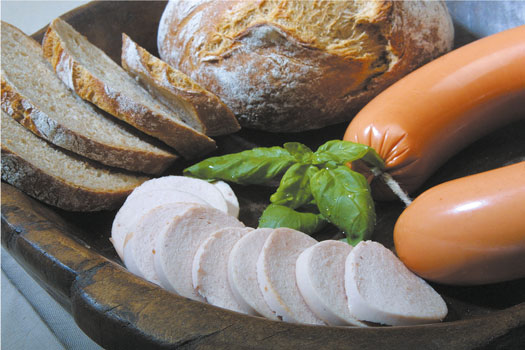
Most people consume too much salt. Five or six grams of salt per day are perfectly sufficient. However, the average person's intake is about twice that amount. Most of this comes from processed foods such as bread, cheese, and meat products.
The objective of this Fraunhofer IVV project is to reduce the salt content of sausage products without diminishing the taste. The approach that will be adopted will be based on the fact that most of the salt we consume does not reach our taste buds. It is consumed without us being aware of it.
The salt in the sausage will be distributed in a customized way such that there is enhanced salt release and perception when eating sausage products. This will enable the amount of salt to be reduced whilst retaining the same taste characteristics.
The research work is being assisted by a computer-aided simulation model developed by Fraunhofer institutes. This model simulates flavor release during chewing processes. Preliminary work has shown that the distribution of the salt in the sausage influences the salt taste: the more unevenly the salt is distributed the saltier the sausage tastes. Indeed, many sausage products could be made with less salt without adversely affecting their taste. Investigations are also underway to determine the extent to which the salt taste can be intensified by synergistic effects from spices and natural flavors.
Based on the research results, new formulations and technological approaches are being developed for manufacturing low-salt sausage products without the addition of salt substitutes. Besides considering the sensory attributes, the development work is also ensuring that the texture properties, stability, and microbiological safety are maintained in the low-salt sausage products.
The project work is being carried out in collaboration with industrial companies. The objective is to develop a viable industrial process for making sausage products with 30 to 40 percent less salt.
Project term: |
2014 to 2016 |
Project management |
Bayerische Forschungsstiftung (Bavarian Research Foundation) |
 Fraunhofer Institute for Process Engineering and Packaging IVV
Fraunhofer Institute for Process Engineering and Packaging IVV